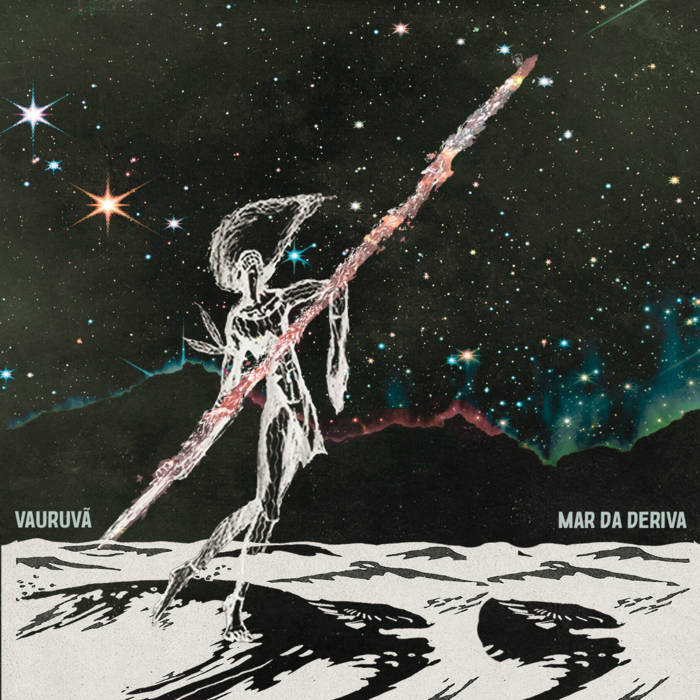
When I hit play on Mar da Deriva because it was a black metal release and people liked it, I didn’t know who Vauruvã were. Had I looked at the band members I’d have recognized Caio Lemos from Kaatayra, but I’d never listened to them much. In short, I listened without expectations, happy to take my ears on a new voyage and see what would happen to them. Then I listened to Mar da Deriva again, and again, and again.
This is going to be one of those positive reviews if you couldn’t tell.
Assuming the internet’s translation can be trusted, Mar da Deriva is an expression that equates to a place or state of uncertainty, change, and being lost. If so, Vauruvã picked the perfect name for this album as that is a fitting short review of the music here. Mar da Deriva is three songs long, the shortest of them over nine minutes, and they all twist and flow like some great serpent from mythology. There is a beautiful, dreamlike quality to Vauruvã‘s take on black metal, yet it is achieved without losing bite. The inclusion of Brazilian folk and progressive passages does nothing to dent that but rather enhances the hypnotic appeal of the album. Mar da Deriva definitely lands on the atmospheric side of the genre yet does so through taking it’s own route. There are no long repetitive passages here but rather sensational songwriting that uses the shifting melodies to create a sense of mood. The mood in question? The sense of being in some great magic realm of old, enchanted and yet tense all at once.
I don’t think I’ve done a sufficient job of explaining just how much I like Mar da Deriva. I don’t think I can. It is a triumph of emotion over musical appreciation, and while I do appreciate the music for itself I’ve got nowhere near to finding every little wrinkle in this dense yet oh so fluid record. I think the best I can say is that what Vauruvã has done here is special and I hope I’ve piqued your interest in the sinuous, entrancing, ever mutating masterpiece.
